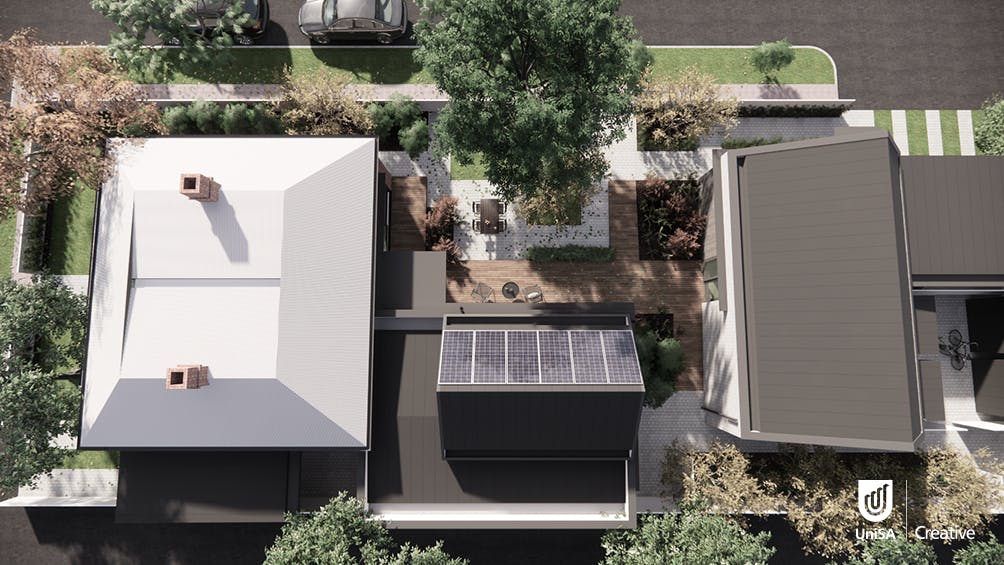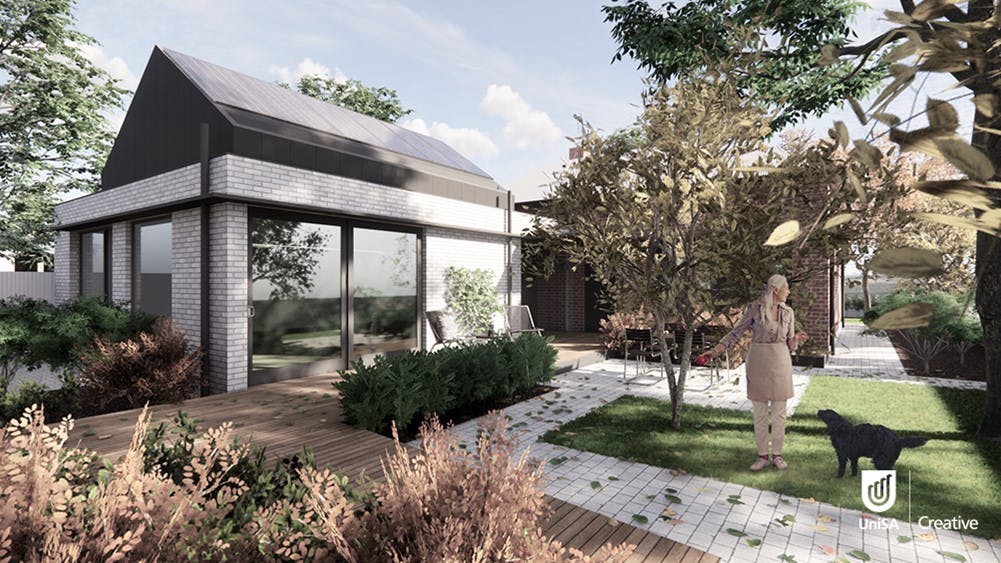Draft Future Living Code Amendment: new planning rules to create greater housing diversity
Consultation has concluded
Have your say on draft planning rules to enhance housing diversity for South Australians and provide more affordable options for different households, life stages and lifestyle choices.
What's being decided?
The draft Future Living Code Amendment would introduce a new form of housing that allows more homes to be built in established residential suburbs, without impacting the existing character, heritage and streetscape.
It encourages existing houses to be retained, altered and extended to create co-located housing, rather than demolished and the site subdivided for multiple homes.
This new form of 'co-located' housing differs from other types of housing in that all homes within the development are of similar stature, without the hierarchy of, for example, a house and a granny flat. It is also unlike conventional units, because the existing home is retained and open space is shared.
The new co-located housing model would help preserve mature trees and established gardens, as well as build a greater sense of community, by providing shared open space rather than small private gardens.
The model also incorporates shared facilities as optional features, which could include laundries, rubbish bins, carparking or activity rooms.
Each home that is part of the co-located housing development could be bought and sold separately and would be managed through community title.
The proposed planning rules for co-located housing complement and add to existing rules, such as building height limits and tree protections, to ensure streetscape, character and heritage are maintained through this new form of housing.
The draft Future Living Code Amendment would apply to well-established neighbourhoods in these six council areas within the Greater Adelaide region:
- Alexandrina Council
- City of Burnside
- City of Campbelltown
- City of Prospect
- City of Unley
- Town of Walkerville.
This draft Code Amendment would create a model that could be applied to other areas of the state in the future.
Background
Momentum for this Code Amendment stems from the:
- Planning for a New Retirement Future Symposium, held in 2018
- Cohousing for Ageing Well Project, which concluded in August 2020
- feedback from the Phase Three (Urban Areas) Code Amendment, introduced in March 2021.
A key recommendation of the ‘Cohousing for Ageing Well Project' was to amend the planning rules to recognise co- located housing as a distinct type of development.
The draft Future Living Code Amendment would achieve this by introducing into the Planning and Design Code a new:
- ‘Co-located Housing Overlay’
- land use definition for 'co-located housing'.
The State Planning Commission has worked in partnership with the University of South Australia, City of Unley, Town of Walkerville, City of Campbelltown, City of Burnside, City of Prospect and Alexandrina Council to develop the draft Code Amendment.
While this new form of housing was conceived for older people wishing to downsize in their own community, co-located housing is expected to appeal to a range of South Australians looking for more diverse, small and affordable housing options.
Get involved
The State Planning Commission is seeking feedback on the draft Future Living Code Amendment by 7 November 2024.
Learn more by reading:
- Draft Future Living Code Amendment
- A Short Guide for Co-located Housing
- Explanatory Guide for Co-located Housing
- Fact sheet: Draft Future Living Code Amendment Community Information
- Fact sheet: Comparing common types of housing
- Frequently asked questions
- Bluefield Housing as Alternative Infill for the Suburbs, a book published by Dr Damian Madigan from UniSA (free to download)
View our technical supporting documents:
- Map of affected area
- Draft regulatory amendments to support the Code Amendment
- Co-located housing policy
- Draft template for Community Title Scheme Description
- Draft template for Community Title by-laws
Find out more by:
- asking a question using our questions tool
- attending an online or in-person community information session
Have your say by:
- taking our survey
- share feedback about a specific location using our map tool
- Email a submission to plansasubmissions@sa.gov.au
(subject: Submission – Future Living Code Amendment) - Post your written submission to:
Attention: State Planning Commission, GPO Box 1815, Adelaide SA 5001
Hard copies of the draft Code Amendment and further information is available for viewing during standard business hours at level 9, 83 Pirie Street, Adelaide and at affected council offices.
What are the next steps?
We will consider all feedback in finalising the Code Amendment and all feedback will be captured in an engagement report.
The engagement report will be provided to the State Planning Commission and the Minister for Planning to assist with final decision-making.
Once a decision has been made, the engagement report, including all feedback received during consultation, will be published on this webpage and the PlanSA website. Names and organisations will be included with published submissions but addresses, email addresses and phone numbers will be redacted.







